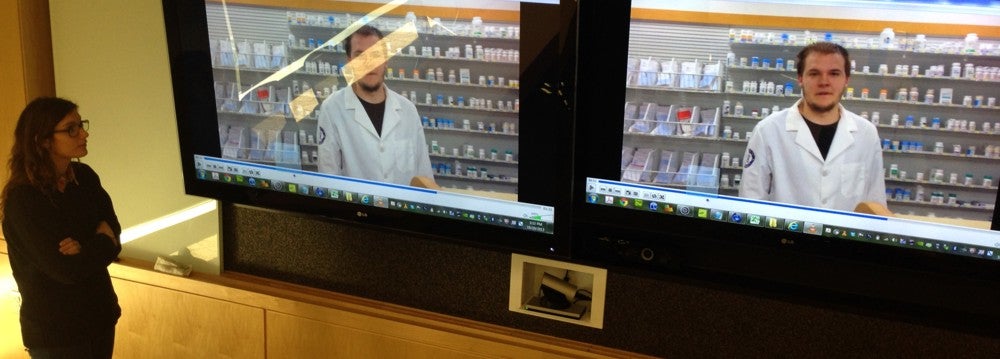< Previous Article | Next Article >
A Student Gets Involved on the
Other Side of Teaching
Sydney Springer’s Experience with the Self Care PSA Project
I was drawn to URI for their vast research in medicinal plants. As I got further into the program, my new passion became educating. I have always had an interest in dietary supplements, but my view on how they relate to pharmacy has changed over time.
Some of the best PSA’s produced in the Self Care class are featured below.
PSAs were judged on a range of criteria with the most weight being given the to quality of the content.
During the spring semester of 2013, I began a special problems elective under Dr. Anne Hume. Though the independent study only lasted one semester, one project was carried over. During the summer, I worked on improving the past years’ Self Care I dietary supplement PSA project. I started with a list: simple ways to get the students more involved in the team project. I knew what I wanted to fix, I knew how I would have liked to fix it, but what I didn’t know was how a professor would have accomplished this. What seemed simple at first quickly became a series of hurdles. I came up with two major modifications: add guidelines to the PSA, and create supplementary projects for the individual student to complete. With the assistance of Dr. Hume and the suggestions of Dr. Orr, Dr. Matson, and Dr. Pawasauskas, I created a rubric, which would later assess the students on both the PSA and their supplementary project.
Throughout the process, I kept one major goal in mind: I wanted the students to learn how to better utilize pharmacy resources in order to enhance patient counseling. Knowing how to interpret clinical findings in a way that is meaningful and relevant to the patient is a valuable asset that cannot be simply taught. This project was meant to be a chance to apply these resources in an educational environment.
No amount of class work could ever have prepared me for this endeavor. Every aspect of the process was new to me; having never had such an opportunity to work so closely with students and faculty, I was able to gain a perspective from the other side. The process was long, the work was tedious at times, but every challenge made it worthwhile. I have gained a profound amount of respect for the work professors do to create new and interesting lesson plans.
Sydney Springer, Class of 2015
Student Pharmacist


